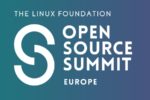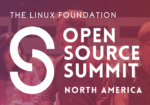International Cryptographic Module Conference (ICMC22)
SAM on the Agenda / Discount Available
ICMC is scheduled to return to a live format during a year that will see widespread changes in commercial cryptography. The highly-anticipated FIPS 140-3 standard will become the single accepted certification for secure cryptographic modules. At the same time, European regulators are moving forward with independent cryptographic standards. Interest in open source solutions has greatly expanded. The conference helps to foster a focused, organized community of users. ICMC reviews technical issues underlying cryptographic implementation including physical security, key management, side-channel analysis, open-source development, algorithm testing, quantum threats, embedded applications, standardization, validation programs, government policy, professional ethics, and more.
OASIS Members receive a 20% discount. Use the code: 22OASIS20.
Join us to learn more about SAM during the presentation ‘Quorate Operations with OASIS SAM Threshold Sharing Scheme‘ on Wednesday, 14 September at 3:45 PM in Room S13A.










